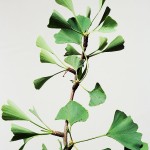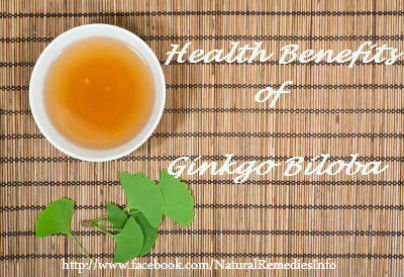 Latin name: Ginkgo biloba
Latin name: Ginkgo biloba
Common name: Buddha’s fingernails, Flying moth leaf, Duck foot, Maidenhair Tree, Fossil Tree
Ginkgo Biloba is one of the most well-known herbs today. Other names for this herb is “Buddha’s fingernails”, “flying moth leaf” and “duck foot.” It is also one of the oldest tree species that is still alive today and the leaves of this herb is one of the most studied leaves in today’s clinical setting.
The two types of chemicals found in Ginkgo leaves are flavonoids and terpenoids. Those two components of this herb was said to be a big success when it came to having strong anti-oxidant properties that benefited in people having Alzheimer’s disease and dementia. Ginkgo biloba was also related to having anti-aging properties since it could ward off harmful free radicals. They are available in tablets, capsules and teas.

What it is used for:
- Improves blood flow circulation to the brain
- Anti-aging and anti-oxidant components
- Treatment of circulatory disorders (high blood pressure and varicose veins)
- Said to work well with helping in cognitive functioning (enhancing memory, thinking, learning and lessens feelings of depression)
- Could reduce mental fatigue
- Strong relationship with treating Alzheimer’s disease and dementia
- Said to be beneficial in altitude sickness, disorientation, asthma and bronchitis
- Headaches, tinnitus and vertigo
- Could reduce the side effects of the following: cardiovascular diseases, menopause and osteoporosis
- Thought to be beneficial in treating impotence and increases infertility
How it is used:
The gingko biloba leaf is the most common part of the plant that extracts are taken from. These extracts could be turned into capsules, tablets and teas. Some skin care products are also derived from this herb such as soap, body scrubs, moisturizer, essential oil among others.
Side effects and cautions:
- Children under 12 years old, should not use Ginkgo
- To see significant results, adults may have to wait 4 to 6 weeks
- Side effects may include: headache, nausea, gastrointestinal upsets, diarrhea, dizziness or allergic skin reactions
- Take caution when taking blood thinning medications, scheduled surgery or dental procedures; make sure you consult your doctor about starting to take this herb to stay away from unwanted side effects
- Raw ginkgo seeds do contain excessive amounts of ginkgotoxin which could cause severe adverse effects.
- Roasted seeds are also very dangers to consume; extracts that contain small amounts of ginkgotoxic is said to be safe when used orally and appropriately
The ginkgo tree is one of the oldest types of trees in the world. It has also been used in traditional Chinese medicine for thousands of years. It has been thought to be helpful in many medical ailments such as bronchitis, asthma, fatigue, tinnitus and other cognitive impairments.
